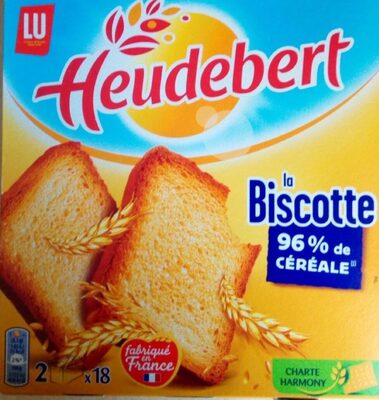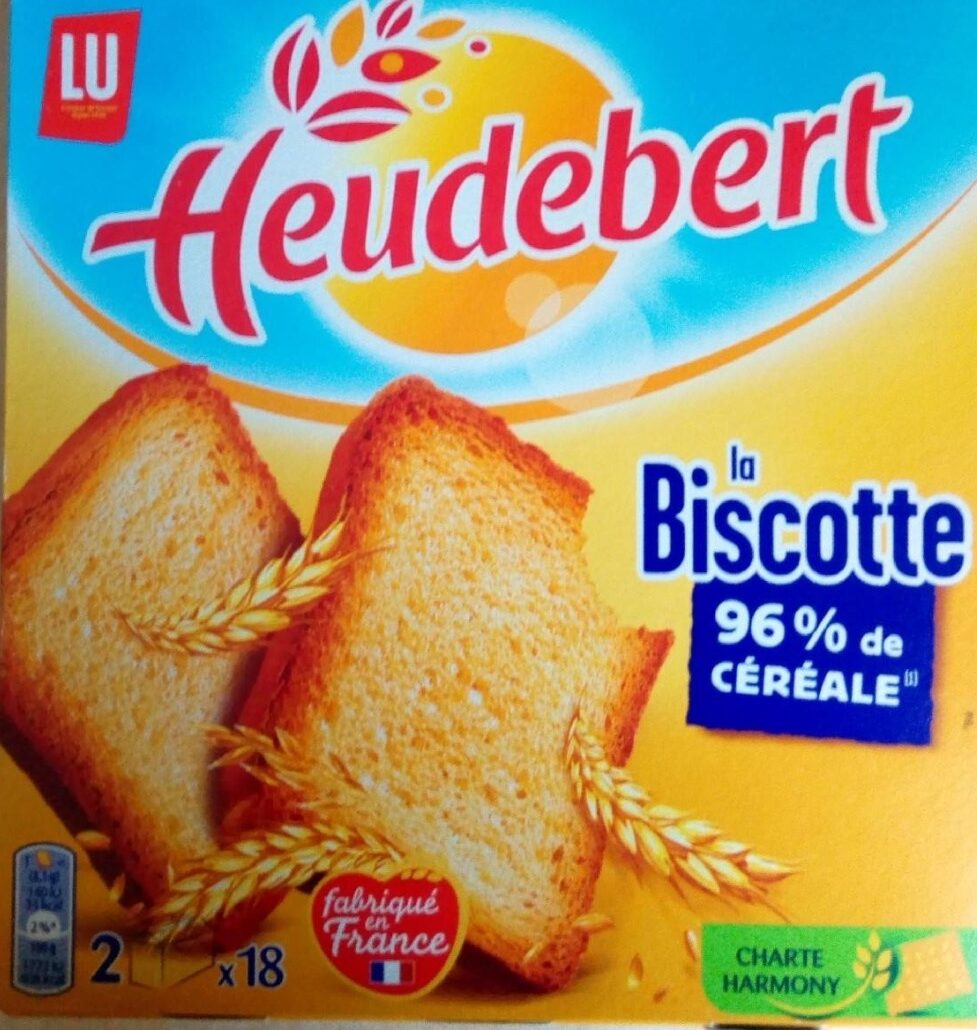Lu - Heudebert Biscottes, 290g (10.2 oz) - 290 g
Barcode: 7622210416681 (EAN / EAN-13)
Common name: recategorisation du product_id 637483 | excatego:107 | exns:D/11
Quantity: 290 g
Packaging: fr:Boîte en carton, fr:Sachet plastique
Brands: LU
Categories: Plant-based foods and beverages, Plant-based foods, Cereals and potatoes, Breads, Rusks, fr:Biscottes de froment
Labels, certifications, awards:
Distributor labels, Charte LU Harmony, Made in France, fr:Blé français, Triman
Origin of ingredients: fr:Blé origine France
Manufacturing or processing places: Normandie, France
Link to the product page on the official site of the producer: http://www.lu.fr/heudebert
Stores: Magasins U, Carrefour Market, Auchan, carrefour.fr, E.leclerc, Carrefour City
Countries where sold: France
Matching with your preferences
Report a problem
Data sources
Product added on by openfoodfacts-contributors
Last edit of product page on by openfoodfacts-contributors.
Product page also edited by brunoa, claire-87, date-limite-app, dorado, dorado-jerome, driveoff, ecoscore-impact-estimator, elttor, feat, fgouget, foodvisor, gildubs, huzaifa, jbp, kiliweb, magasins-u, off.6936dc86-66b2-43e7-938b-e6ec46bc6aa7, packbot, pducrot, quechoisir, sebleouf, smoothie-app, teolemon, tester, thaialagata, yuka.R3FzWUVLSWd2dlExc2MwRCt6RDg5dkVyMTZlNGMyKzJHY2tWSWc9PQ, yuka.WjZJR0RiUmR0cVU2b2ZRbjBERGsyb3BzNloya1IxNmRkZVU0SVE9PQ, yuka.YTVnNlFQUVRqK2trZ1BRZCswL3F3TkJmN2FYellXcUhNN2NOSWc9PQ, yuka.ZDVBQ1NZa3ZpL01ybTgwbG95NzU2NHA3K0xXUmUwNjJMTWd2SVE9PQ.











